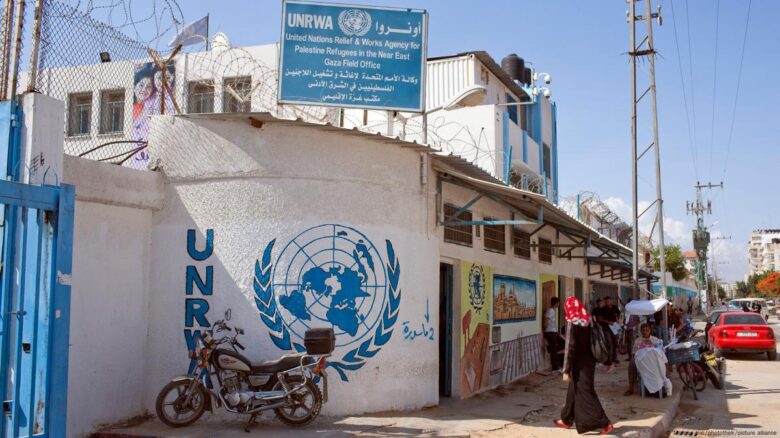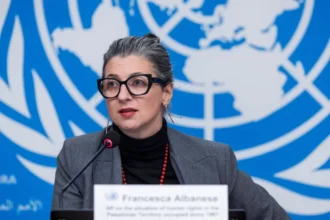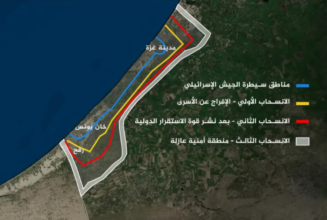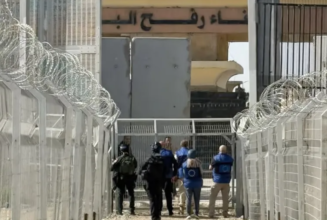
On World Refugee Day, ICSPR Calls on the International Community and the United Nations System to Uphold Their Legal and Moral Responsibilities Toward the Ongoing Catastrophe Facing Palestinian Refugees
Date: June 2025
Press Release
On World Refugee Day
(ICSPR) calls on the international community and the United Nations system to assume their legal and moral responsibilities regarding the ongoing catastrophe faced by Palestinian refugees, especially the genocide currently taking place in the Gaza Strip.
Today, Friday, June 20, 2025, marks World Refugee Day, a global day designated by the United Nations to honor refugees around the world who have been forced to flee their homelands to escape armed conflicts or persecution. This day serves as an opportunity to build solidarity, raise awareness of their plight, and emphasize the need to protect rights and promote resilience.
This year’s World Refugee Day coincides with the ongoing war of extermination and continued Israeli aggression against the Gaza Strip, which began on October 7, 2023. Since then, Palestinians have experienced yet another chapter of the renewed Nakba, as Israel continues to commit crimes of genocide, ethnic cleansing, and repeated forced displacement in Gaza—crimes that have reached an unprecedented scale in history. This has led to the largest wave of forced displacement in the history of the Palestinian people since the Nakba of 1948. The Israeli occupation has forced approximately 2.3 million residents of the Gaza Strip into displacement, pushing them into shelters, tents, streets, and public squares, exposing them to death, bombing, starvation, and denial of basic rights. Meanwhile, Israel continues to destroy homes, health institutions, humanitarian facilities, and infrastructure, rendering the Gaza Strip uninhabitable, in an attempt to force its residents to leave their homeland. This is part of an Israeli plan to resolve the conflict by eliminating the refugee issue.
Approximately two million Palestinians have been forcibly displaced from their homes since the onset of the aggression, most of whom are refugees—who constitute nearly 75% of Gaza’s population. The genocide has resulted in the forced displacement of about 200,000 Palestinians outside Gaza, the killing and disappearance of around 70,000 individuals, and the injury of about 130,000 people, in addition to the destruction of 90% of refugee camps, civilian facilities, and infrastructure.
It is worth noting that by 2025, the number of Palestinian refugees has reached around 8 million. According to records from the United Nations Relief and Works Agency for Palestine Refugees in the Near East (UNRWA) as of August 2024, the number of registered Palestinian refugees is approximately 6 million, including about 2.5 million in the West Bank and Gaza Strip, making up around 42% of the total number of Palestinian refugees. In Arab countries, about 40% of registered Palestinian refugees are in Jordan, while the percentages in Lebanon and Syria are approximately 8% and 10%, respectively. These figures represent the minimum number of refugees, as they do not include unregistered individuals—such as those displaced after 1949 until the eve of the 1967 war (according to UNRWA’s definition), or Palestinians expelled or displaced during the 1967 war who were not originally refugees.
In the West Bank, according to UNRWA data, the number of displaced Palestinians from camps in the northern West Bank has risen to more than 42,000, due to the ongoing Israeli aggression and forced displacement campaigns, home demolitions, and ongoing arrest operations. The number of displaced individuals from Jenin camp and its surroundings has reached 21,000, representing 30% of the population of Jenin city and camp. Meanwhile, most residents of Tulkarm and Nur Shams camps, estimated by the Palestinian Central Bureau of Statistics at around 19,000 refugees, have been displaced by mid-2025. These operations are part of continued Israeli efforts to target refugee camps and dismantle their symbolic role in the Palestinian national struggle.
At the same time, the Israeli occupation continues to target UNRWA by attempting to demonize it as a United Nations institution, tarnish its reputation by accusing it of terrorism, and inciting against it in order to cut its funding, undermine its work, and push for its elimination and replacement. This includes the establishment of American-Israeli aid companies, whose distribution centers in Gaza have turned into death traps, using starvation and humanitarian aid as weapons in the context of the genocide.
The International Commission to Support Palestinian Rights renews its urgent call to the international community and the United Nations system to assume their legal, moral, and humanitarian responsibilities regarding the continuous catastrophe suffered by Palestinian refugees—especially in the Gaza Strip, which is witnessing ongoing genocide. This demands serious and effective international action to stop the massacres, end the suffering of Palestinian refugees and displaced persons, and enable them to enjoy their legitimate rights—foremost among them the right of return and compensation. The Commission rejects all projects aimed at forcibly displacing refugees or changing their legal and historical status and emphasizes that the right of return is an inalienable right according to United Nations General Assembly Resolution 194. Palestinian refugees are not just numbers—they are human beings with rights, seeking self-determination, return, and justice. Accordingly, the Commission demands the following:
-
The International Commission to Support Palestinian Rights calls on the international community, third-party states, freedom-loving people, and solidarity movements to work toward protecting the rights of Palestinian refugees, supporting their right of return, and strengthening the role of UNRWA, which serves as a vital lifeline for millions of refugees—ensuring it continues to provide humanitarian, health, educational, and relief services until a just solution is reached that guarantees their return, compensation, and restoration of their properties.
-
The International Commission to Support Palestinian Rights calls on the international community to take serious action to stop the genocide against civilians, ensure the dignified delivery of humanitarian aid through United Nations mechanisms, end the criminal American-Israeli aid system, support the resilience of Palestinian refugees, and work to rebuild what the Israeli occupation has destroyed.
-
The International Commission to Support Palestinian Rights urges the United Nations, the European Union, the League of Arab States, the Organization of Islamic Cooperation, and all regional organizations to support and protect Palestinian refugees, provide them with international protection, and move to boycott Israel, divest, impose sanctions, and hold its leaders and partners accountable before international courts.
End.





